In partnership with the World Bank, the Ghanaian government has officially launched the Tree Crop Diversification Project (TCDP), a six-year initiative aimed at boosting the productivity and income of farmers involved in tree crops such as cocoa, cashew, coconut, and rubber.
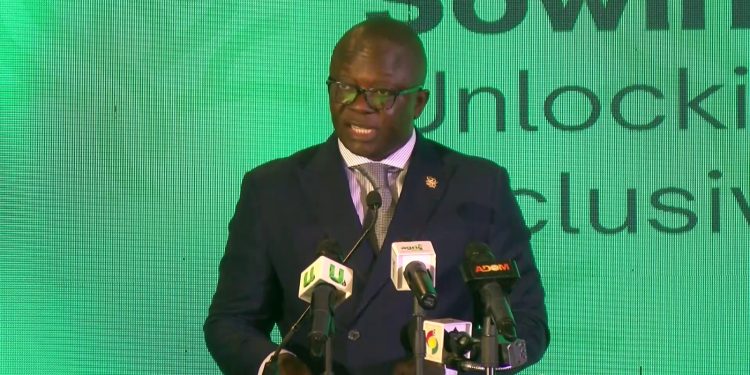
Funded with a $200 million credit from the International Development Association of the World Bank Group, the project is designed to address key challenges that impact crop productivity and long-term sustainability.
Speaking at the launch on Thursday, November 14, Food and Agriculture Minister Dr. Bryan Acheampong expressed optimism about the project’s potential to transform the agriculture sector.
He highlighted that the Tree Crop Diversification Project will offer essential support to farmers, fostering growth and resilience in the industry.
“The project will take a demand-driven approach to enhance access to inputs, services and economic opportunities while fostering social inclusion and strengthening relationships between beneficiary communities and local government. It will also address the risk of child labour in tree crops through integrated prevention, identification and remediation systems.
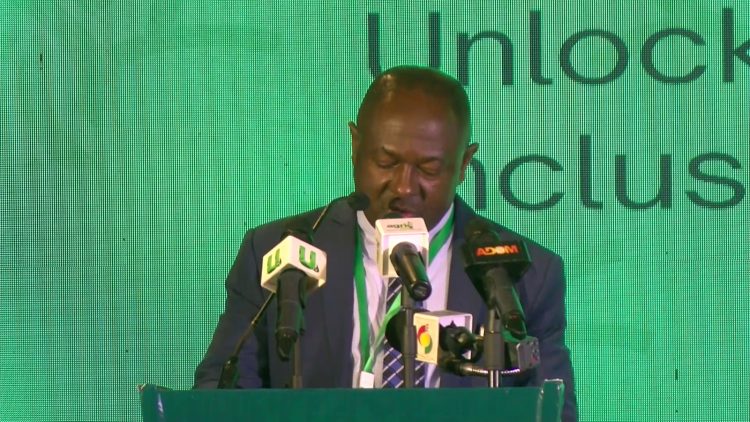
“By improving production and productivity in selected value chains, the project will drive income growth at the farm level along the value chain.
Additionally, digitalization and the establishment of traceable value chains will enable certification providing further income. The project will directly benefit cocoa, cashew, coconut and rubber farmers, improving productivity and incomes for over 50,000 farmers and their households. Approximately, 40% of these beneficiaries will be women.”
Director of External resource mobilization at the Ministry of Finance, Louis Kwame Amo, representing the sector Minister indicated that the Ghana Tree Crop Diversification Project will cushion the country’s economy against climate change and other effects as it shifts the country’s reliance on one cash crop.
“For years, Ghana has been a key player in the global agricultural landscape, particularly through our production of cash crops like cocoa, which has long been a pillar of our economy. However, we are all aware that over-reliance on a single commodity exposes us to external shocks—whether from price fluctuations or the impacts of climate change. Diversifying our tree crop sector is, therefore, not just an economic imperative, but a strategic necessity to build a more resilient, inclusive economy.
“The Ghana Tree Crop Diversification Project aims to expand and develop the production of high-value tree crops such as cashew, cocoa, coconut, and rubber. By strengthening the production, processing, and export of these crops, we are not only broadening the economic base of our agricultural sector but also creating sustainable livelihoods for millions of farmers, particularly in rural areas.
“This project will help strengthen our economy, enhance its resilience to climate change and global market fluctuations. Diversification reduces the risks associated with over-reliance on a single commodity, creates new income opportunities for farmers, and opens new markets both domestically and internationally. Ultimately, we aspire to move from being primarily a producer of raw materials to a more competitive, value-added agricultural exporter”
Chief Executive Officer of Ghana Cocoa Board Joseph Boahen Aidoo, on his part, underscored the importance of the project complimenting efforts of the regulator in promoting a robust cocoa sector.

“We are glad to note that the Tree Crops Diversification Project is designed to contribute to efforts of COCOBOD through investments for strengthening COCOBOD’s institutional capacity and digital transformation; improving productivity and climate resilience through intensive research on CSSVD management, rehabilitation of diseased farms. And strengthening cocoa co-operatives; assisting small scale and artisanal manufacturers to increase value addition and create jobs in cocoa processing as well as protecting children and other vulnerable groups within the selected cocoa landscapes.
“By committing resources to interventions in these areas, the Bank also contributes to the Government’s overall strategy for cocoa sector modernisation. We are also committed to ensuring the effective and efficient implementation of the project. We expect that the project will leave a lasting impact on the target beneficiaries and communities and pave the way for more such collaborations.”

Meanwhile, Country Director of World Bank Robert Taliercio O’Brien expressed hope that the project “delivers long-term, shared benefits for all Ghanaians. Together, we can build a resilient, competitive, and sustainable tree crop industry that supports national development, job creation, and poverty reduction.
“We at the World Bank, look forward to the positive impact this project will have and am confident that, through the strong partnerships we are fostering, we will achieve significant success,” he concluded.

































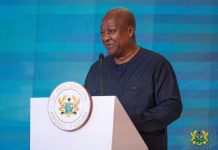


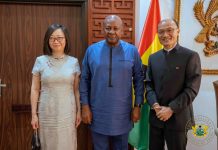



















![[FREE FREE MONEY] Predict and Win a Guaranteed GH¢200 From Us EVERY WEEK](https://wordpress.ghanatalksradio.com/wp-content/uploads/2022/02/Predict-and-Win-Final-09-03-2021-218x150.jpg)
![[Predict & Win – 8th/Oct.] WIN A Guaranteed ¢200 From Us This Week](https://wordpress.ghanatalksradio.com/wp-content/uploads/2021/10/maxresdefault-16-218x150.jpg)
![[Predict & Win – 2nd] WIN A Guaranteed ¢200 From Us This Week](https://wordpress.ghanatalksradio.com/wp-content/uploads/2021/09/maxresdefault-50-218x150.jpg)
![[Predict & Win – 25th] WIN A Guaranteed ¢200 From Us This Week](https://wordpress.ghanatalksradio.com/wp-content/uploads/2021/09/maxresdefault-36-218x150.jpg)
![[Predict & Win – 18th] WIN A Guaranteed ¢200 From Us This Week](https://wordpress.ghanatalksradio.com/wp-content/uploads/2021/09/maxresdefault-23-218x150.jpg)



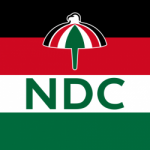





![[National cathedral] See full list of churches that have contributed since 2018](https://wordpress.ghanatalksradio.com/wp-content/uploads/2020/09/Ghana-National-Cathedral-GhanaTalksRadio-100x70.jpg)



